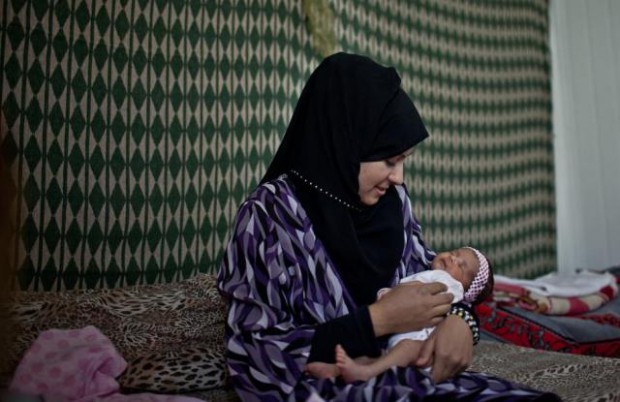Syria: Failure is not an option
Holding the Geneva II conference next month is a necessary step on the path to a lasting peace for Syria.
Skepticism is growing about the prospects for a much-delayed peace conference for Syria. Some opposition groups have threatened to pull out of Geneva II, as its being called, while increasing divisions within the Obama administration threaten to derail the talks before they even begin. Nobody believes that bringing a peaceful solution to the conflict in Syria will be easy, but failure is not an option. The alternative—more death, displacement, and suffering for the Syrian people, and a crisis spilling out of Syria’s borders to engulf the entire region—means the United States and the international community must forge ahead.
The contrast from just a few weeks ago is stark. A deal to eradicate Syria’s chemical weapons marked a rare moment of cooperation for the US and Russia. As Oxfam has argued in our new report, Moment of Truth, the international community now has a window of opportunity to build upon this progress to find a holistic solution to the root causes of the conflict which has killed more than 100,000 people and displaced 2 million from the country over the last two and a half years.

Time is running short. Scientists have cautioned that this winter is likely to be the harshest in 100 years, making it even more vital that blankets, heaters, and other crucial winter supplies reach refugees before the weather turns cold in earnest. Countries hosting refugees will also need help preparing roads, drainage, and other vital infrastructure for the brutal winter ahead. To make matters worse, more and more refugees are losing their homes as they exhaust the savings they brought with them from Syria, and jobs—particularly in the construction and agricultural sectors that employ so many refugees—dry up for the season.
As if the coming winter wasn’t enough, relations between refugees and the communities that are hosting them are growing increasingly strained, with signs of xenophobia and discrimination targeting Syrian refugees and Palestinian refugees from Syria across the region. In Lebanon, in particular, the combination of significant income inequality—often in areas that also host large numbers of refugees—and persistent ethnic and religious tensions has meant that refugees have become scapegoats for deeper societal problems. Furthermore, the participation of various Lebanese factions in the conflict has meant that Syria’s civil war is a local issue across Lebanon. As violence continues to impact countries neighboring Syria, there is a real risk of conflict spreading and engulfing the entire region.
Nobody believes that Geneva II will immediately solve all of Syria’s problems, but it will be a start. Meeting with refugees in Jordan and Lebanon over the summer, I was struck by how little faith they had in the prospects for returning home any time soon and how badly they yearned for some process in which they could invest their hopes. The peace talks offer the promise of a way forward and can inspire a generation of young refugees growing up far from home to dream of becoming peacemakers rather than fighters.
For this to happen though, the parties must agree to meet without preconditions, and the United States and other members of the international community need to set aside their own differences and support an inclusive process. They must also ensure that their policies are not contradictory. The US for example has provided more than a billion dollars in humanitarian aid, but is also providing rebels with guns and ammunition that are likely to only exacerbate conflict and human suffering.
Although Oxfam opposed legislation in Congress to authorize military strikes on Syria, one positive aspect of the proposed bill was Section 6, which required President Obama to submit an “integrated United States Government strategy for achieving a negotiated political settlement to the conflict in Syria, including…diplomatic, political, economic, and military policy towards Syria.” As the New York Times has recently revealed, the White House has suffered deep divisions and even ambivalence on Syria policy, which has failed to recognize the inter-related dynamics of the conflict and its regional dimensions. Outlining a cohesive strategy would be a positive step forward.
It is not too late for the United States and the international community to come together and put an end to the Syria crisis before it takes even more lives and produces even more suffering. Holding the Geneva II conference next month is a necessary step on the path to a lasting peace, and an opportunity that the US—and the people of Syria—cannot afford to miss.